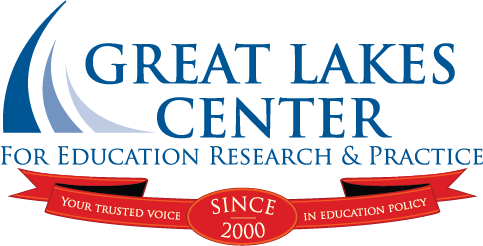
Think Twice Weekly Report
JANUARY 27, 2024 - February 2, 2024
The Think Twice Weekly Report compiles public education-related policy reports, research and articles of interest to policymakers, educators and stakeholders. This list is not exhaustive but is meant to highlight recent reports that may be used to support or undermine the work of our subscribers in supporting public schools. We encourage you to take a moment to scan these reports and determine if they may be used by policy makers to assist or erode your mission.
 Policy Reports
Policy Reports
School Finance and Funding
Source: Albert Shanker Institute, University of Miami School of Education and Human Development, and Rutgers Graduate School of Education
Date: January 2024
The Adequacy and Fairness of State School Finance Systems
In this sixth edition of their annual report, the authors evaluate the K-12 school finance systems of all 50 states and the District of Columbia. The latest year of data presented is the 2020-21 school year. Accompanying this report are single-page profiles summarizing the performance of the school finance systems of all 50 states and the District of Columbia.
School Reform and Restructuring
Source: CRPE
Date: 1/28/2024
A "good life" for every student: High schools embrace many pathways to success
Can the lessons schools learned in the Covid-19 recovery period contribute to more lasting, transformative shifts in high school?
Researchers from CRPE and the Center for Public Research and Leadership (CPRL), with support from the Barr Foundation, studied a group of New England public high schools during the pandemic recovery period to explore this question and hear directly from students and adults about their experiences.
 Reports Reviewed
Reports Reviewed
GLC seeks to ensure that policy briefs impacting education reform are based on sound, credible academic research. Below are reviews conducted with GLC support.
Once Again, University of Arkansas Charter Funding Report Makes Unfounded Claims
Source: University of Arkansas Department of Education Reform
Reviewed by: Mark Weber, Rutgers University
Mark Weber of Rutgers University and the New Jersey Policy Perspective reviewed Still a Good Investment: Charter School Productivity in Nine Cities and details the faulty methodology that undermines the validity of its conclusions.
 What We're Reading
What We're Reading
Research and articles that we want to highlight for subscribers as potential resources:
How the anti-CRT push has unraveled local support for schools
By: Javeria Salman, The Hechinger Report
A new peer-reviewed study by researchers at Michigan State University and the University at Albany provides some insight into how the anti-CRT movement took hold - and the lasting consequences for how communities view their teachers and schools.
The 2024 National Educational Technology Plan (NETP)
By: U.S. Department of Education
The U.S. Department of Education released the 2024 National Educational Technology Plan (NETP). The NETP frames three key divides limiting the transformational potential of educational technology to support teaching and learning: the Digital Use Divide, the Digital Design Divide, and the Digital Access Divide.
Striving for Relationship-Centered Schools: Insights From a Community-Based Transformation Campaign
By: Laura E. Hernández Eddie Rivero, Learning Policy Institute
Relationship-centered schools provide an alternative to the archaic and de-personalized structures that have come to characterize U.S. secondary schools. This report focuses on one relationship-centered high school transformation effort-the Relationship Centered Schools (RCS) campaign, a youth-led effort supported by the community-based organization Californians for Justice (CFJ).
Truth In Education Funding
By: Truth In Education Funding
The Truth in Education Funding Guide offers key resources to understand the controversy surrounding vouchers and advocate for equitable and effective public education.
A glitch blocks thousands of immigrant families from a new, simpler FAFSA. The fix is TBD.
By: Kalyn Belsha, Chalkbeat
The FAFSA form was released months later than usual, leaving students much less time to complete it and schools scrambling to offer help. One of the biggest issues is that parents who don't have a Social Security number can't enter their information right now, and workarounds from prior years are gone. Potentially tens of thousands of U.S. citizen students and others with legal status - who are eligible for federal financial aid regardless of their parents' immigration status - could be affected.
